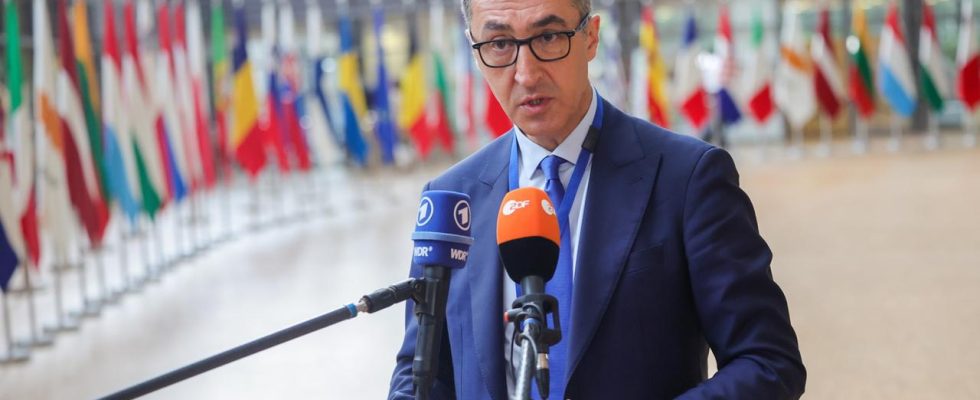There is currently an import ban on grain from Ukraine in five eastern EU countries. Poland, among others, insists that it stays that way – to the annoyance of Federal Minister of Agriculture Özdemir.
The anger is great. Federal Minister of Agriculture Cem Özdemir is particularly angry with the Polish government. She is not ready to change her tough stance. The election campaign in Poland probably played a major role.
The price for this is high – solidarity with Ukraine is being torpedoed: “The only one who’s happy is Vladimir Putin. But we shouldn’t do anything that makes Vladimir Putin happy.” Clear words from the green agricultural politician not only to Poland. Also to Bulgaria, Hungary, Romania and Slovakia.
Dispute over agricultural products from Ukraine
These EU countries are still benefiting from an exception that many agricultural politicians in Germany and France had warned about from the start: they have to let agricultural products from Ukraine through.
But no farm in these countries had to fear a possible drop in price because none of it could be sold in these countries. Maize, rapeseed and sunflower seeds – with these products, domestic agriculture is protected – mind you, only in these countries through an exception.
Özdemir: “It’s not a wish-you-what”
The EU Commission, but also Özdemir pushed for changes. But that will probably not be on September 15 as planned, but later. After the elections in Poland.
Özdemir is harsh on the Eastern Europeans: “It’s not a wish, where you pick out what you like at the moment. You can’t get money from Brussels but close the border at the same time.” Özdemir’s French counterpart Marc Fesneau sees it similarly. Finland’s Agriculture Minister Sari Essayah is also concerned: individual EU countries should not go it alone.
Poland threatens EU with unilateral steps
Poland’s Prime Minister Mateusz Morawiecki had threatened to take unilateral steps if the EU Commission did not extend the exemptions to protect farmers beyond September 15th, they would do it themselves. This is exactly what could happen now if the import ban is not extended.
“This is not only a big problem for the EU market,” warned Finland’s Minister of Agriculture. “We must also ensure that grain from Ukraine enters global markets via EU territory. The grain is important for global food security.”
solidarity paths for Ukrainian grain exports
Russia canceled the grain agreement just over a week ago. Now Ukraine can no longer transport goods across the Black Sea. So-called solidarity paths through the EU are intended to remedy the situation. But coordination is complicated and expensive.
Transit countries such as the Czech Republic and Poland fear full warehouses and falling prices. In mid-September, the agriculture ministers want to reassess the situation again.
Goal: Find new transport routes
“There is a risk that Russia will benefit most from this situation,” warned Poland’s EU Agriculture Commissioner Janusz Wojciechowski, “for countries in Africa and elsewhere it could end up being cheaper to buy grain from Russia than grain from Ukraine, which is more expensive due to the complicated transport”.
Federal Minister of Agriculture Özdemir had discussed alternative routes. Grain could be transported in sealed trains through Poland to ports in the Baltic States and shipped from there. In any case, new transport routes should be found – inland shipping should also play a major role in transport.

